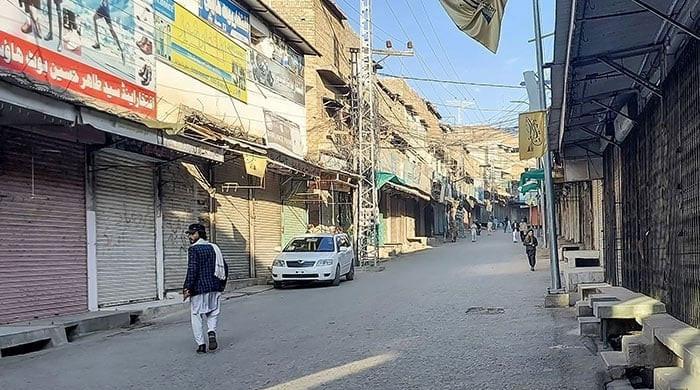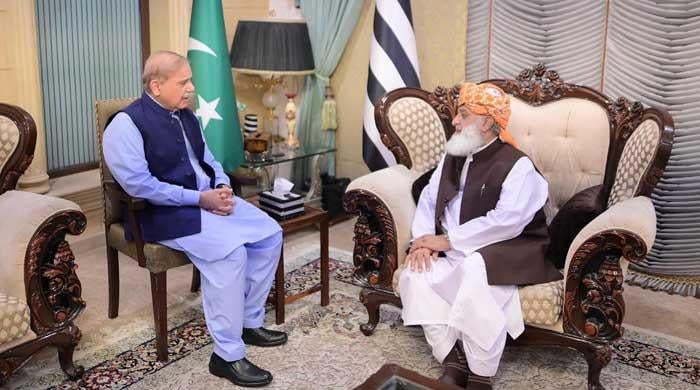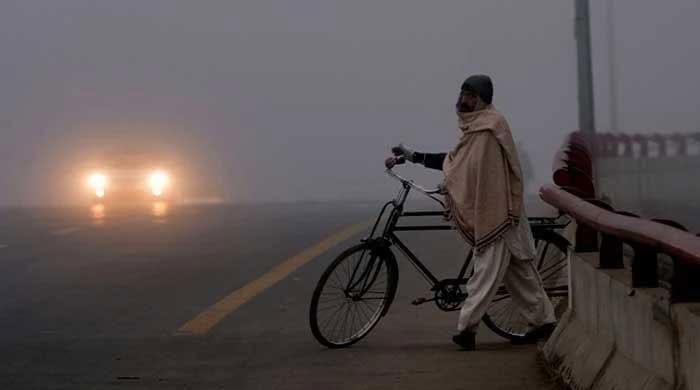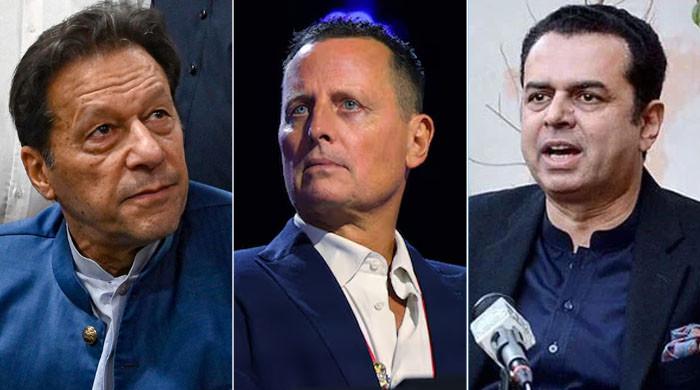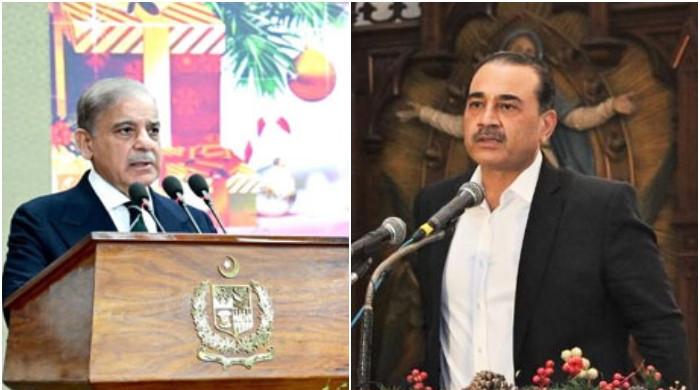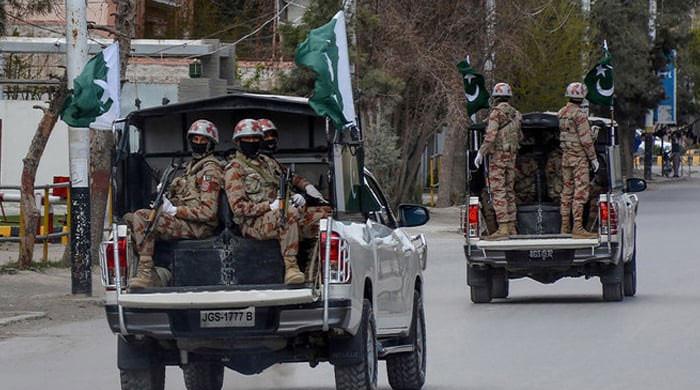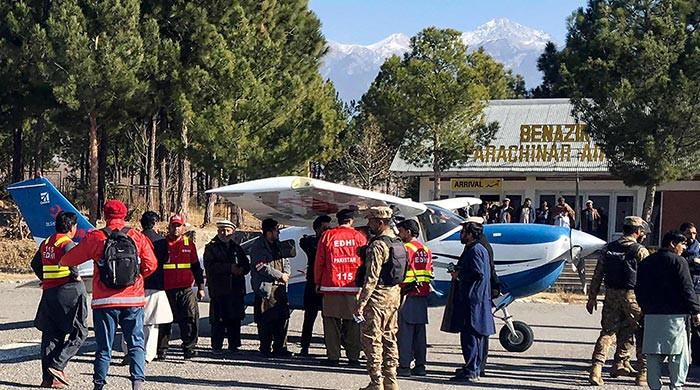PTI expected to argue on Akbar S Babar's plea on foreign funding today
A three-member bench, headed by Chief Election Commissioner Sikandar Sultan Raja, will hear plea today
March 22, 2023
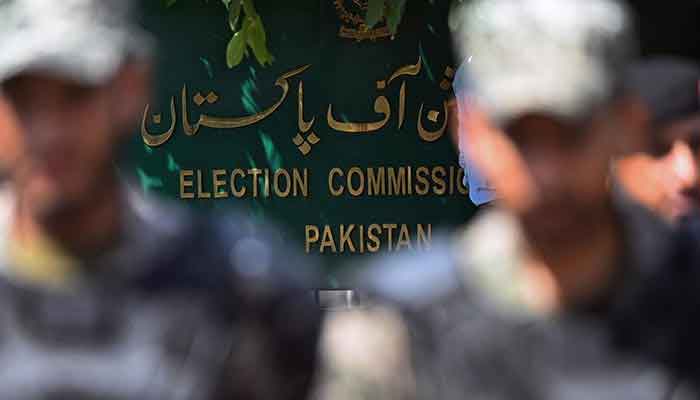
- PTI was issued notice last year to justify why further legal action should not be taken against it.
- PTI had filed fresh application demanding cross-examination of key witnesses.
- Babar called it another desperate effort by PTI to further delay matter.
ISLAMABAD: Pakistan Tehreek-e-Insaf (PTI) is expected to deliver its arguments on Akbar S Babar's — the founding member of the party — appeal under the Political Parties Order 2002 about the foreign funding matter, The News reported Wednesday.
A three-member bench, headed by Chief Election Commissioner Sikandar Sultan Raja, will hear the application filed by PTI’s former central information secretary after having issued the show cause to the party through its chairman Imran Khan last year.
The Election Commission of Pakistan (ECP) passed the judgement on August 2, 2022, documenting financial fraud and over $7 million of illegal funding, and as the law requires, it issued a show cause to the PTI in August 2022 to justify why further legal action should not be taken against it for gross financial irregularities.
However, instead of responding to the show cause, the PTI had filed a fresh application demanding the cross-examination of key witnesses. The fresh demand for cross-examining is in total contrast to PTI’s stated position during the eight years of the case, claiming the ECP is not a “court of law” and the proceedings can only be inquisitorial and adversarial.
“The commission will issue its order on the application filed by the Pakistan Tehreek-e-Insaf for the cross-examination of those who appeared before the commission during the prohibited foreign funding case hearing over the years (that was filed by Babar back in November 2014),” a senior commission official told The News here.
He pointed out that previously, the PTI lawyers had been opposing cross-examination and now wanted to opt for it and, therefore, had submitted an application a few months ago before the bench.
Reacting to the application, Babar had alleged during his media talk that this was yet another desperate effort by the PTI to further delay the matter, whereas what was required of them was to respond to the show cause issued to the party several months ago.
The commission had issued its judgement in the prohibited foreign funding case on August 2, last year, and unanimously held that the PTI had indeed received prohibited funding. It then had issued a notice to the party asking why the funds should not be confiscated.
After a lengthy series of hearings and scrutiny of the banking record, the commission found that the PTI had received funding from prohibited sources: the party got funds from 34 foreign nationals and 351 foreign-based companies; it took ownership of eight accounts, kept 13 hidden and failed to mention three of them.
Accordingly, a notice was issued to the PTI to explain why funds should not be confiscated while Form 1 submitted by party chief Imran Khan was found to be grossly inaccurate.
The verdict had mentioned that the party "knowingly and willfully" received funding from Wootton Cricket Limited, operated by business tycoon Arif Naqvi; the party was a "willing recipient" of prohibited money worth $2,121,500.
Moreover, the commission had said that the party "knowingly and willfully" also received donations from Bristol Engineering Services (a UAE-based company), E-Planet Trustees (a Cayman Islands private registered company), SS Marketing Manchester (a UK-based private company), PTI USA LLC-6160, and PTI USA LLC-5975, which were "hit by prohibition and in violation of Pakistani laws".
Separately, the commission has also fixed for March 28 five cases against Imran, Secretary General Asad Umar, and Senior Vice President Fawad Chaudhry on the contempt of the commission and chief election commissioner.
Previously, on March 7, the commission issued bailable arrest warrants for the PTI chairman and Fawad in the contempt case of CEC Raja for "deliberately seeking adjournments in the case, amounting to the mockery of the law". However, these were suspended by the Lahore High Court (LHC) on March 13.
A four-member bench of the commission, headed by the commission member from Sindh, Nisar Ahmed Durrani, had heard the case here and issued the order of issuance of warrants for Imran and directed him to submit two sureties of Rs50,000 each. The inspector general of police, Islamabad, had been directed to execute the warrants by March 14.
The commission had issued notices to Umar and Fawad for using intemperate language against the commission and chief election commissioner last year. Specifically, Imran and Fawad were also issued contempt notices vis-à-vis the chief election commissioner.
Reacting to the development, Fawad had called the ECP order contempt of the LHC orders and declared to get the commission summoned to the high court. However, during these days, the hearing on the intra-party election case of Pakistan Muslim League-Nawaz (PML-N), which was delisted previously on March 13, a day before the hearing was due, has not been fixed.
Earlier, on January 12, the commission had given more time to the ruling party to do the needful by March 14, as the bench, headed by the CEC, had given it two months. At the outset of the proceedings, PML-N counsel Ahsan Jahangir told the bench that the intra-party elections could not be conducted owing to the pressing engagements of Prime Minister Shehbaz Sharif (the party president), who had been occupied with a number of responsibilities since becoming premier.
The bench had observed that why not withdraw the election symbol allotted to the party for non-compliance with the legal requirement. The chief election commissioner had even remarked that a person who was so busy that he could not hold intra-party elections should not be the party president.
It is pertinent that PML-N intra-party polls were due on March 22 last year, but on the party’s request, the commission had extended the date and allowed it to hold the exercise at the latest by May 14 and submit the related certificate by May 21, but the PML-N had failed to carry out the poll exercise.
After the issuance of the final show cause notices to PM Shehbaz and PML-N Secretary General Ahsan Iqbal in November 2022, the bench held out an assurance that intra-party polls would be held by the year’s end. On January 5, another deadline was given to the party in this connection, or else it would be deprived of its election symbol.
Section 208 of the Elections Act, 2017 binds political parties to elect office-bearers at the federal, provincial, and local levels, wherever applicable, periodically in accordance with their respective constitutions.




